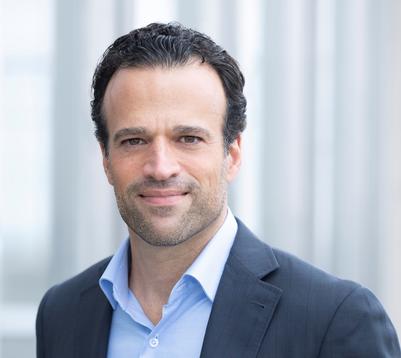1. How is your business committed to climate action and having a real-world impact?
Hydro-Québec is the largest generator of renewable energy in North America, with more than 99% of its electricity produced from water. Our hydropower can be an important part of the solution to the major challenges facing the Northeast in reducing GHG emissions and localized air pollutants whose effects are often most felt in front-line disadvantaged communities where fossil fuel generation is located. Plus, facing this clean energy transition, our precious reliable energy is a secure power supply that can support and balance intermittent sources, such as wind and solar.
For Hydro-Québec, delivering our renewable energy directly to places that are committed to decarbonize, like New York City, allow us to have a profound positive real-world impact. That is exactly what we are witnessing with the new transmission line called the Champlain Hudson Power Express (CHPE). A project that is currently under construction and that will be flowing power from Québec to New York City in 2026.
2. How are you inspired by other stakeholders or organizations who engage in climate action?
Climate change is an existential threat that we are all facing, so it strikes me that the most effective way to go on addressing it is working together. Community engagement and leadership at all levels are undeniably critical in mission success. So, what is inspiring for me are moments when various groups unite constructively. Seeing elected officials, community organizers and citizens regroup to demand climate action and doing so with fact-based information, that’s impactful and it helps us move towards common goals. New York’s CHPE project is an excellent example of this. Laying subterrestrial and submarine cables over a 339-mile stretch, that will be carrying 1,250 MW of clean energy from Québec all the way to Queens, doesn’t happen without a collective commitment to decarbonizing.
3. What are you doing to ensure that your organization is incorporating environmental justice as it transitions to a more sustainable model?
People are at the center of the climate movement, and we need to always turn to them as our North Star. That is why we believe in close partnerships and being a community first partner.
Two examples come to mind related to environmental justice, one is the workforce development fund we have in place with our project partners in New York to support historically low-income and disadvantaged communities get access to training in the green economy that we hope will lead to career pathways in good paying jobs. The second is the partnership we are forging with the Mohawk Council of Kahnawà:ke in Québec on an historic co-ownership agreement for the Hertel–New York interconnection line.
4. Faced with climate change, what are the main challenges that need to be addressed by organizations, business and governments in order to move faster to decarbonize our economy?
Time is of the essence in addressing climate change. We must stop saying that we are taking action for our grandchildren and start saying we are fighting climate change today. To move faster collectively, we have to keep pushing the envelope on smart policies that give the right signals to the market. We need to reform some processes and increase human resources working on decarbonization projects to make sure we have the bandwidth to get them done. It’s also important to avoid administrative or regulatory inefficiencies that can inadvertently lead to delays.
From where I sit, I think we need to take a wider regional approach that involves strong involvement from all players, including governments across borders, to achieve the clean energy transition. The Northeast market needs to create a balanced renewable energy mix with hydro, wind, solar, as well as other smart technologies. To plan and deliver not only transmission infrastructure we need to adopt an “all hands-on deck” approach. Together, we must adopt a vision that goes across our own borders, be allies instead of competitors, to build a reliable interconnected regional power grid. This collective approach will not only allow us to do things more efficiently but also more economically to limit the impact on rate payers.
We are facing a big change of paradigm; we must maximize and value our precious renewable resources. Our mission is to fight climate change, and to work with communities, stakeholders, governments in order to find the best solutions and to act now. There are no small actions, and this is a shared responsibility.
Hydro-Québec is joining us at US Climate Action Summit this year as a Spotlight Partner. Register to watch virtually on April 19 here.
Bio:
Serge Abergel took office as Chief Operating Officer of Hydro-Québec Energy Services in December 2021. This subsidiary is responsible for hydropower export initiatives to the New York and New England markets.
Since joining Hydro-Québec in 2014, Mr. Abergel has held various positions in media and stakeholder relations and government affairs. He has also led information campaigns on the company’s export initiatives and is a frequent public speaker on Hydro-Québec’s clean energy generating fleet and transmission system. Prior to his most recent appointment, he served as Director – Communications.
Mr. Abergel has considerable previous experience working as a public affairs officer in the Canadian Armed Forces and the federal correctional system.
He holds a bachelor’s degree in operations management from HEC Montréal.
